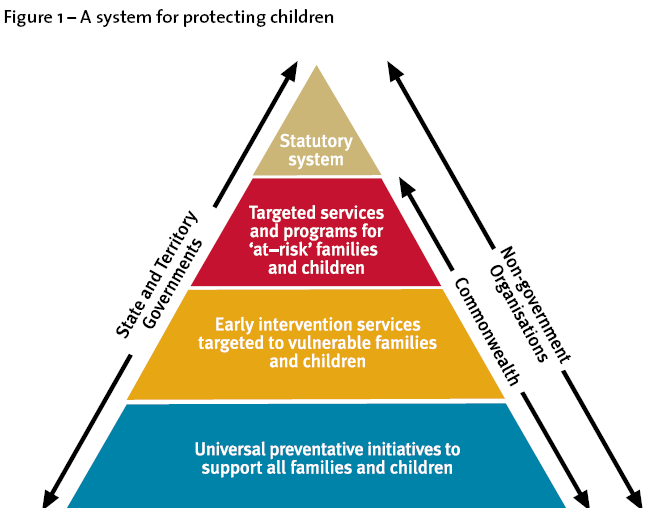Data protection and residential care homes
Table of Content
We can also arrange and deliver general training for staff, and bespoke training for key staff, a priority identified in the ICO report. Our training will also offer hints, tips and best practice pointers which, if implemented and enforced, should significantly reduce the likelihood of getting the wrong side of the ICO. Faxes are not yet obsolete and where they are used there is a risk of personal data being inadvertently sent to the wrong recipient. A fax usage policy can help to reduce risks, for example, by making more use of pre-programmed numbers and restricting the information that may be sent by fax.
The FoIA imposes a duty on public bodies to adopt schemes, which must be approved by the Information Commissioner, for the publication of information. The Data Protection Act 2018 controls how your personal information is used by organisations, businesses or the government. Portable devices that store personal data, such as laptops, USB sticks and DVD/CD media should be encrypted.
Instagram fined for breaching children’s data privacy
Breaches which carry any risk to data subjects must be reported to the Information Commissioner’s Office within 72 hours, together with a summary of the nature of the breach, the steps taken to reduce the risk to data subjects, and measures to prevent the breach from happening again. Residential care homes should have a data protection policy dealing with, among other things, email usage, disposal of documents, physical security, home working, archiving and retention. Everyone working in the Home has a responsibility to ensure that personal information collected on children is stored securely, and that when it is shared with other agencies this is done appropriately and in accordance with the law.
If staff are appropriately trained, any organisation is well on the way to compliance with data protection legislation. Training needs will vary according to size and type of care organisation and BLS can conduct a training needs analysis on your behalf if required. Processed lawfully, fairly and in a transparent manner in relation to individuals; collected for specified, explicit and legitimate purposes; and not further processed in a manner that is incompatible with those purposes.
How can I demonstrate compliance with GDPR for care homes?
As with the previous data protection legislation, residents have a qualified right of access under the GDPR to their own personal data and this will include access to recordings of them made by the CCTV. BLS has extensive experience in the health and social care sector, working with large NHS trusts, to GP Federations, right through to rural sole-trader holistic services and independent care homes and support facilities. Every reasonable step must be taken to ensure that personal data that is inaccurate, having regard to the purposes for which they are processed, is erased or rectified without delay. There is an express requirement under the GDPR that personal data is to be processed for only as long as its purpose requires it to be. The care home operator will therefore need to consider for what period footage should be stored by the home and any policy on CCTV should reflect this.

This article does not propose to discuss processing conditions in any degree of detail. Earlier this month, the Information Commissioner’s Office published a report of its findings following 11 visits undertaken during 2014 to residential care homes. The objective was to understand how the care homes were processing personal data, to identify the shortcomings and to recommend improvements in practice. Consent - Consent is also a lawful basis for sharing information in UK GDPR and would cover sharing where the individual has given clear consent for you to process their personal data for a specific purpose.
How to identify risks and increase organisational compliance with the UK GDPR and UK Data Protection Act.
On 25th May, the rules around how organisations keep and use data is changing. At McClarrons, we’ve pulled together an overview of GDPR in the Care sector, and how you can stay GDPR compliant. Personal data - data or information is personal when it can be used to identify a living individual. Legitimate interest - means the data subject would reasonably expect you to process their data in the manner in which it is being processed. Security breaches can occur when we use paper records, send information using fax machines and even verbally. Or the can occur with digital information which is potentially more severe, with information poteyntially distributed to a wider audience with ease.
Failure to provide individuals with adequate information about how their personal data was to be processed. All staff in the Home who work with children should complete information sharing training - including refreshers. This training should equip staff with the skills and knowledge to share information in a timely and safe way. Organisations with over 250 employees dealing with sensitive data will need to appoint a data protection officer, to monitor or process sensitive data.
Flexebee provides care home compliance training courses with individual programmes on Communication and Record Keeping trainingand GDPR Awareness training, both of which are key elements of the changes to GDPR. Personal data should be processed fairly and lawfully and, in particular shall not be processed unless certain conditions, set out in the Act, are met. If cameras are to be used, the care home operator will have to make decisions about various matters relevant to the GDPR, including who has access to the CCTV and for what reasons. The CQC has considered the issues raised in the use of surveillance in care services and published information for providers on using surveillance to monitor services. The debate has included discussion on whether covert filming can ever be appropriate in care homes, but this briefing focuses on the use of non-covert cameras in care homes.

Britain’s exit from the EU will not affect the changes, which have been brought about to give people greater control over their information and how it is stored and used by all types of organisations, including those in the care sector. Fair processing - conditions which must be met to legally process personal data. Data breach - incident resulting in personal or sensitive data being lost, altered or viewed by unauthorised individuals. GDPR guidance, policies and procedures Take a look at what QCS can offer with GDPR guidance, policies and procedures.
Familiarise yourself with the data you currently hold – You need to review what personal data you currently hold, why you have it, and how you obtained it. These new rules as stated above allow you to communicate information that is essential to the provision of your service. The new General Data Protection Regulation is an EU rule which will replace the Data Protection Act of 1998 from 25th May.

It is important to always choose the lawful basis that most closely reflects the true nature of your relationship with the individual and the purpose of the processing. Lawful Bases for Sharing Information - The UK GDPR provides practitioners with a number of lawful bases for sharing information. It is not necessary to seek consent to share information for the purposes of safeguarding and promoting the welfare of a child, providing there is another lawful basis for the sharing.
Personal data shall not be transferred to a country or territory outside the EEA unless that country or territory ensures an adequate level of protection for the rights of data for subjects in relation to the processing of personal data. As with other forms of data processing, care home operators will need to consider the specific arrangements which they make for processing the CCTV images and the implications of using third party processors, such as cloud storage services. Residential care homes that are regulated by Ofsted must have an internal reporting procedure. However, in practice this is restricted to care incidents and not data security breaches.

There should be more use of individual and not shared logons, with more complex passwords than is the case at present. Consideration should be given to how to ensure that as few staff as necessary have access to personal data. Genuine consent should put individuals in charge, build trust and engagement. Consent is one lawful basis for processing information, but there are five others.
What does GDPR say about data?
The DSPT is a self-reporting tool thatall organisationswith access to NHS datamust complete. BLS Stay Compliant can guide your organisation in responding to a SAR and can aid in setting up adequate practices should you receive one, including how to recognise a valid SAR. Alternatively, we can hold a bespoke course to fit you and ensure that all members of staff who have connection to the data you use, store and manage are appropriately trained at a time and place convenient to you. Our open courses are available to any member of any organisation and run online throughout the year and may be the answer to your data protection gap. Care providers are increasingly storing, processing and sharing personal information. How to identify risks and increase organisational compliance with the UK GDPR and UK Data Protection Act.
A breach goes beyond losing someone’s personal data or leaving their information vulnerable to hackers. It can also relate to unauthorised access or disclosure, loss or complete destruction, and alteration. Encryption sits high on the GDPR agenda as this greatly reduces the likelihood of leaving data vulnerable to exposure.


Comments
Post a Comment